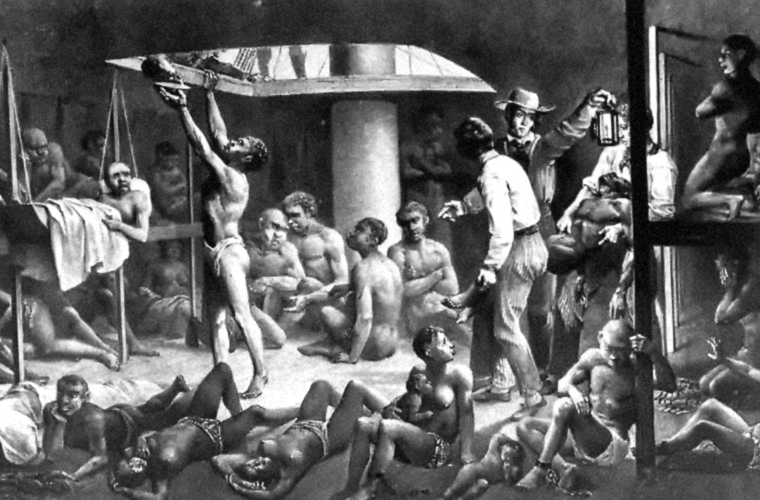The Middle Passage refers to the transatlantic journey undertaken by slave ships from West Africa to the Americas during the 16th to 19th centuries. This infamous route was a crucial part of the triangular trade, which involved the transportation of enslaved Africans to the Americas, where they were sold into slavery, and the subsequent transportation of goods, such as sugar, cotton, and tobacco, back to Europe.
The Middle Passage was a harrowing and traumatic experience for the millions of Africans who were forcibly taken from their homes and transported across the Atlantic Ocean under inhumane conditions. The journey typically began on the coast of West Africa, where African men, women, and children were captured and then held in coastal forts or barracoons before being loaded onto slave ships. The conditions aboard these ships were deplorable, with enslaved Africans crammed into tight, unsanitary spaces with little access to food, water, or fresh air. Disease and malnutrition were rampant, and many enslaved people did not survive the grueling journey. It is estimated that millions of Africans perished during the Middle Passage due to disease, starvation, and brutal treatment at the hands of the ship’s crew.

The Middle Passage was characterized by its brutality and dehumanization, as enslaved Africans were treated as mere commodities to be bought, sold, and transported for profit. The physical and psychological trauma inflicted on these individuals during the Middle Passage had far-reaching consequences that continue to impact African diaspora communities today. The legacy of the Middle Passage is a painful reminder of the inhumanity of the transatlantic slave trade and the enduring impact it has had on the lives of millions of people. It serves as a stark reminder of the need to acknowledge and confront the historical injustices perpetrated against enslaved Africans and their descendants, and to work toward healing and reconciliation.
In recent years, there has been a growing recognition of the need to commemorate and memorialize the victims of the Middle Passage, as well as to educate future generations about this dark chapter in human history. Efforts to preserve and interpret the physical remains of slave ships and their human cargo, as well as to establish memorials and museums dedicated to the memory of those who suffered during the Middle Passage, are crucial steps towards honoring their legacy and ensuring that their stories are not forgotten.
The Middle Passage continues to hold profound significance for people of African descent around the world, serving as a powerful symbol of resilience, survival, and the enduring quest for freedom and justice. By acknowledging the profound impact of the Middle Passage and working to preserve its memory, we can honor the resilience and strength of those who endured unimaginable suffering and ensure that their experiences are never forgotten.

